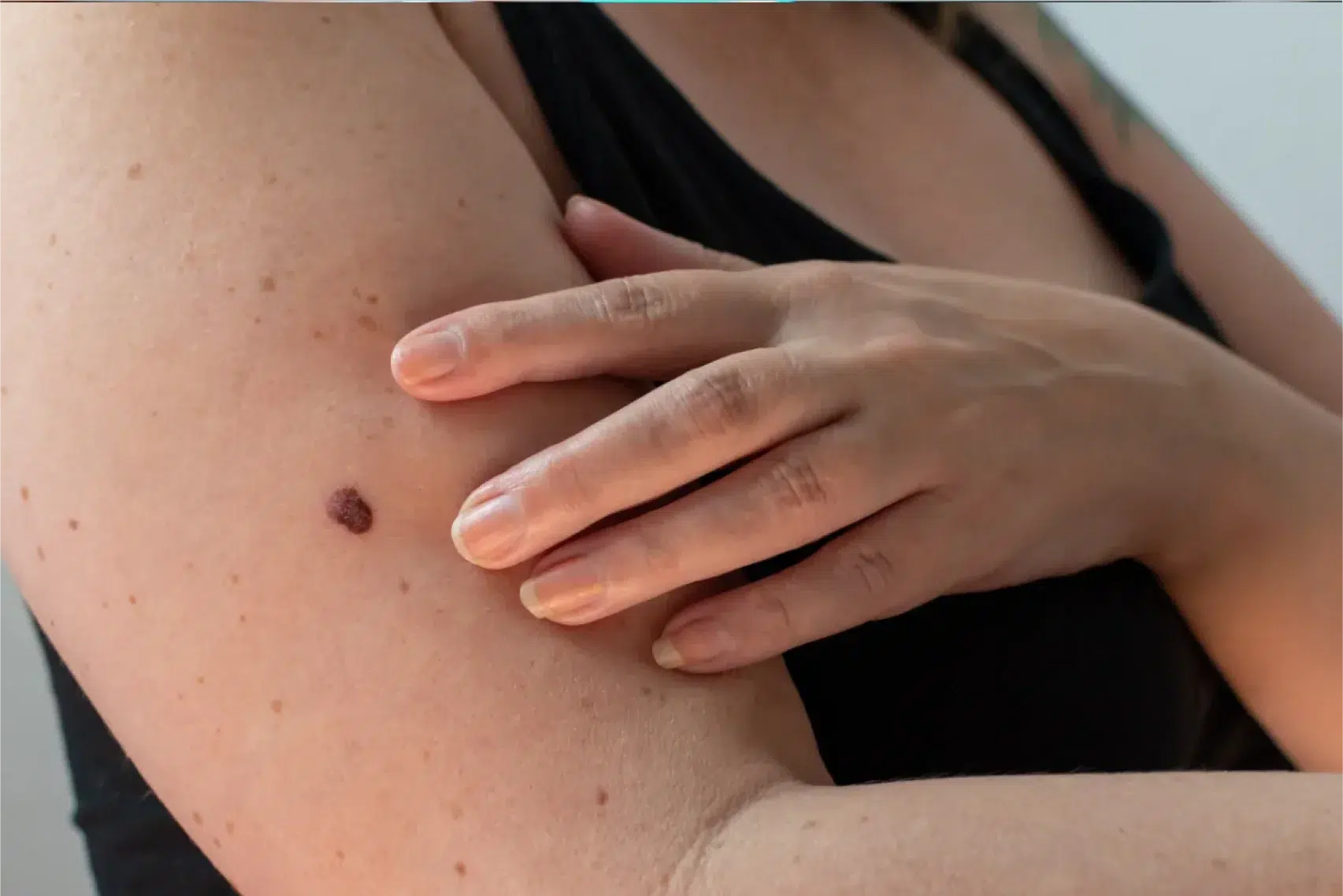According to the National Skin Cancer Foundation, around one in five Americans will develop skin cancer by age 70. At Elite Dermatology and Plastic Surgery, with offices in Houston, Fulshear, Kingwood, Vintage Park, Pearland and the Heights, TX, the experienced group of skincare specialists are aware of the dangers of skin cancer and provide comprehensive annual skin cancer screenings and valuable education for men, women, and children in the surrounding communities. An annual skin cancer screening should be a key part of your preventive healthcare to protect your skin and help your Elite doctor to catch any signs of cancer early. If you have concerns about your skin and are due for a screening, call or use the online booking tool.
Skin Cancer Surveillance FAQs
What is skin cancer?
Skin cancer is the abnormal growth of skin cells caused by DNA mutations that prompt rapid growth and a mass of cancer cells. People of all skin tones and all ages can develop skin cancer, and it can show up on different body parts.
What are the different types of skin cancer?
There are different types of skin cancer. Here are the three most common types of skin cancer:
Squamous cell carcinoma
Squamous cell carcinoma usually shows up as a flat lesion with a scaly surface or a red, firm nodule on the areas of the body that are most often exposed to the sun.
Basal cell carcinoma
Basal cell carcinoma is the most common, but it rarely spreads and grows slowly. It also typically appears on sun-exposed areas of your skin, like your neck and face. It appears as a waxy bump or a flesh-colored flat lesion.
Melanoma
Melanoma is a skin cancer that can happen anywhere on your body either on normal skin or in a mole that becomes cancerous over time. Melanoma often appears on the trunk, face, or lower legs as a mole that changes in color and size and bleeds or a large spot that’s brown in color with darker speckles. Melanoma can show up in a small lesion with an unusual-looking outline and different color patterns, such as blue, bluish black, red, or white.

What are the risk factors for skin cancer?
There are a variety of risk factors for skin cancer, such as:
- Moles
- Having fair skin
- Excessive sun exposure
- Certain toxic substances
- A weakened immune system
- Excess exposure to UV radiation
- Having a family history of skin cancer
Why should I get an annual skin cancer screening?
An annual skin cancer screening allows your Elite doctor to check for any suspicious or abnormal moles or bleeding lesions in a visual inspection and physical examination. Full-body or partial screenings are available depending on your individual needs. A skin cancer screening is an integral part of your overall preventive care. If you have a personal or family history of skin cancer, more frequent skin cancer screenings are recommended.
What can I expect at my skin check?
At your skin check, we ask you to undress to your comfort level revealing all the areas of your skin that you would like to be checked then put on a medical gown. Then the provider will enter the room to examine your skin. The provider will use a dermatoscope which is a magnifying lens along with a bright light. This will help us discern any abnormalities in the skin. We will thoroughly examine your skin while making sure you are comfortable through the process.
How is skin cancer diagnosed and treated?
A biopsy can be used to determine the specific subtype of skin cancer. Skin cancer can be treated with:
- Surgical excision
- Electrodesiccation and curettage
- Prescription topical creams
- Chemotherapy
- Radiation
If you’re due for your screening, call or conveniently schedule online.
Schedule Your Skin Cancer Screening at Elite Dermatology
Protect your skin with expert care at Elite Dermatology and Plastic Surgery. Learn about our practice, meet our providers, and check our accepted insurance to ensure your screening is covered. Explore our full range of medical dermatology services, and schedule your annual skin cancer screening today for peace of mind and proactive health management.

